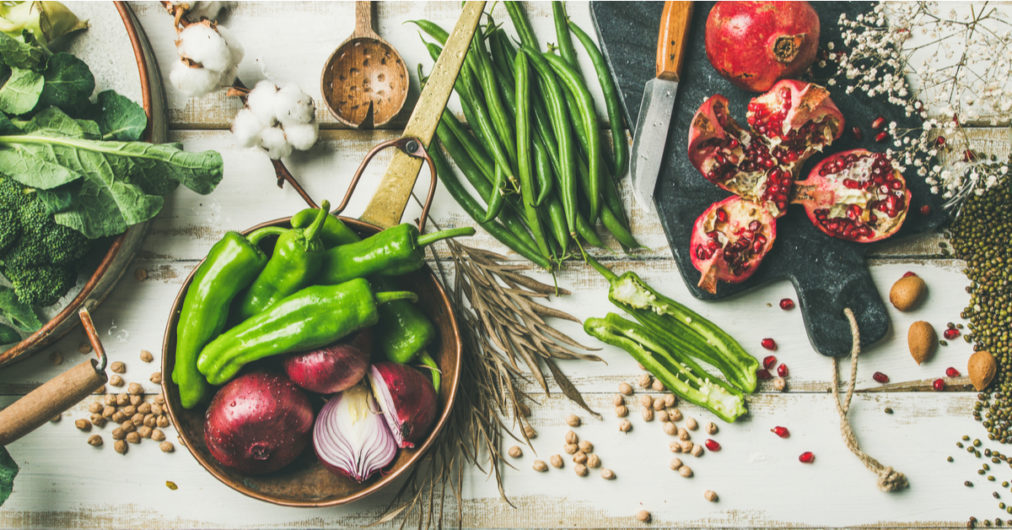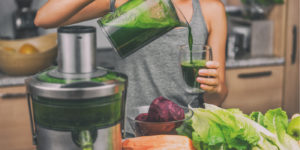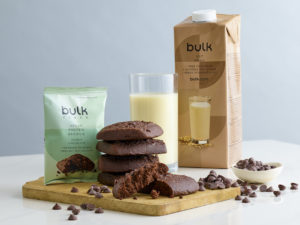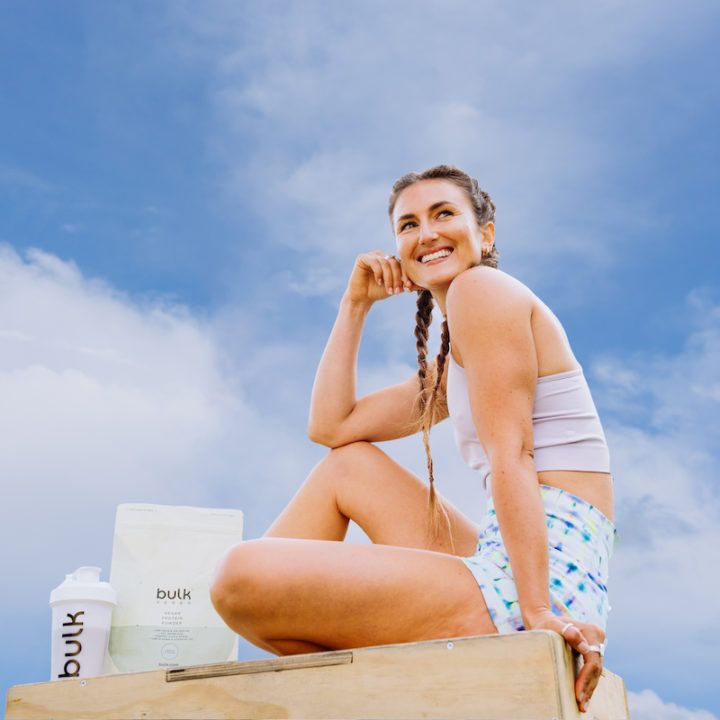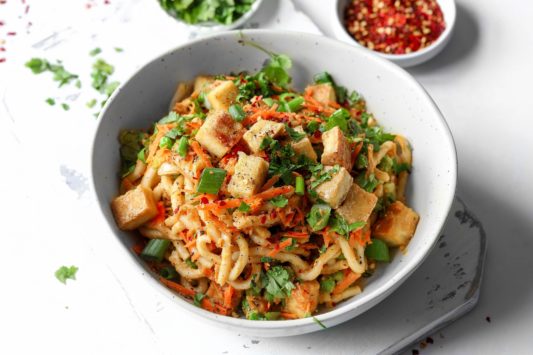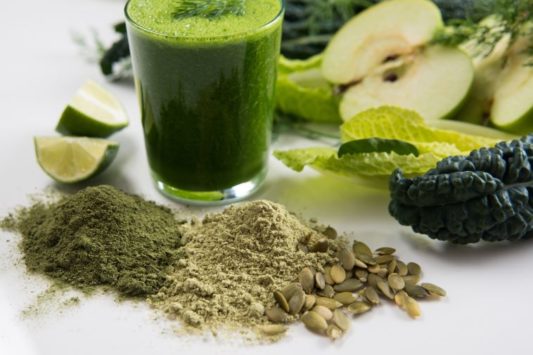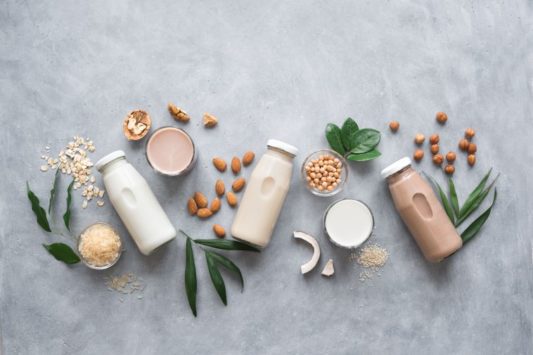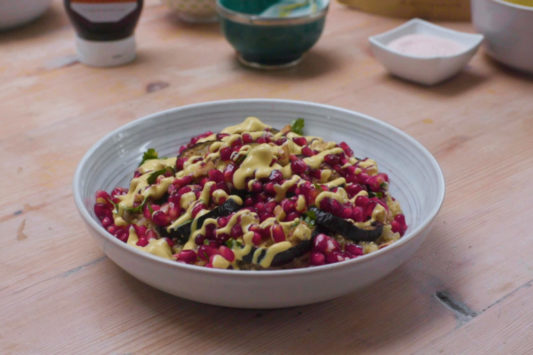Once dismissed as a fad trend, vegan diets are now more mainstream than ever before. 2020 was a record-breaking year for veganism as its popularity soared to new heights. Vegan-friendly supplements are growing in number. More information is now understood around the important vitamins for vegans and how to support people following a plant-based diet. Reports show the number of vegan-related searches online has almost doubled since 2015 and the number of people following plant-based diets is increasing with no signs of slowing down. According to analysts, young women are the driving force behind this growth, however there are many reasons why people choose to go plant-based or reduce their meat consumption. The most common motivators are health improvement, animal welfare, environmental concerns, weight management, and taste. Some people simply don’t enjoy eating animal products.
Plant-based and plant-forward diets focus on eating foods exclusively (or primarily) from plants. This includes fruit and vegetables, whole grains, legumes, pulses, nuts, seeds, and oils. While these foods are incredibly nutritious and provide many health benefits, they can often be lacking in essential nutrients found in animal-derived foods and supplementation is often recommended. Let’s take a look at some of the most important vitamins for vegans to optimise health.
Vitamin B12
Whilst anyone can have low vitamin B12 levels, studies show that vegetarians and vegans have a higher risk of deficiency. Vitamin B12 is important for many processes in the body and low vitamin B12 levels can lead to damage to the nervous system, anaemia, infertility, and bone and heart disease. Foods rich in vitamin B12 include beef, chicken, fish, shellfish and eggs. It’s therefore incredibly important that all vegans get enough vitamin B12. The only reliable method to achieve this is by taking a vitamin B12 supplement or eating fortified foods.
Folate
Folic acid and folate are both forms of vitamin B9. Folate is the form that occurs naturally in foods and in the body, whereas folic acid is the version found in fortified foods and supplements. Foods rich in folate include leafy greens, beans, peas, and lentils. It’s a good idea for women of childbearing consider a folic acid supplement of 400 micrograms as nearly half of all pregnancies are unplanned and folic acid significantly reduces the risk of a baby developing birth defects like spina bifida. The oral contraceptive pill depletes folate levels in the body, increasing the need to take a precautionary folic acid supplement. Without supplementation, expectant mothers are also at risk of anaemia due to the increased folate needs of the developing baby. For maximum protection, folic acid should be taken eight weeks before conception and during the first trimester.
Iron
Women are thought to be at particular risk of iron deficiency, including those on a vegetarian or vegan diet. Although meat is a potent source of iron, there are lots of plant foods that contain good amounts of this mineral including pulses, tofu, dark-green vegetables, whole grains and chia seeds. It’s recommended to combine foods rich in iron with foods high in vitamin C to improve absorption such as peppers, broccoli, kiwis, and citrus fruits. Vegans that don’t get enough iron from their diet should consider fortified foods or taking an iron supplement. This being said, overly high iron levels can be harmful and iron supplements are not suitable for everyone.
Omega-3 fatty acids
Omega-3 is an essential fatty acid, rich in EPA (Eicosapentaenoic acid), Alpha-linolenic acid (ALA), and DHA (Docosahexaenoic acid), which play an important role in keeping our hearts, brains, skin, hair, and nails healthy. Predominantly found in food sources such as fatty fish (salmon, mackerel, sardines, etc), walnuts, chia seeds, and flaxseeds. To gain all 3 fatty acids, vegetarians and vegans can reach the recommended intake by supplementing with a vegan-friendly Omega 3 6 9 supplement or algae oil.
Iodine
Getting enough iodine is vital for healthy thyroid function, which controls metabolism. Vegans are considered to be at the highest risk of iodine deficiency which can lead to hypothyroidism. This can cause low energy levels, dry skin, tingling in hands and feet, low mood, forgetfulness, and even weight gain. Foods considered to have high iodine levels include seafood, seaweed, iodised salt, and dairy products. Therefore, vegans that don’t want to eat seaweed or use iodised salt several times a week might consider supplementation.
Zinc
This mineral is crucial for metabolism, immune function, and the repair of cells in the body. A zinc deficiency can lead to hair loss, developmental problems, delayed wound healing, and diarrhoea. Few plant foods are high in zinc and the absorption of this mineral from some plant foods can be limited. Therefore, vegetarians and vegans are encouraged to aim for 1.5 times the recommended intake. To boost your intake, eat a variety of zinc-rich foods such as whole grains, tofu, legumes, nuts, seeds, and sprouted beans. Vegans that don’t gain a lot of zinc from their diet should consider taking a daily zinc supplement.
Calcium
Calcium is a hugely important mineral for the health of bones, teeth, and muscles, along with the circulatory and nervous systems. However, many people fail to meet the recommended daily intake of calcium, including vegans. People often consider dairy as the only source of calcium; however, this mineral is actually naturally present in a wide array of plant foods such as soy products, beans, peas, lentils, seaweed, leafy greens, and almonds. Aside from the foods with naturally occurring calcium, there are also many foods fortified with this mineral such as cereals and milk alternatives. It is therefore recommended that you eat a variety of these foods to ensure you are meeting your calcium needs when following a vegan diet.
It’s worth noting that the body needs vitamin D to regulate the amount of calcium in the body. These nutrients help keep bones, teeth and muscles healthy, however, vitamin D is another nutrient that can often be lacking by those following plant-based diets. Aside from exposure to sunlight, good vegan sources of vitamin D include fortified breakfast cereals, fortified plant milk, fortified fat spreads and vitamin D supplements. If you are a fussy eater, have allergies or struggle to eat a lot of food; taking a calcium and vitamin D supplement would be a safe bet to keep hit your daily intakes.
Following a plant-based diet can offer many health benefits, however, preparation and planning are key. Supplementation can be incredibly helpful to ensure you’re getting the recommended amounts of essential vitamins and minerals that you need – for anyone. Multivitamins created specifically for vegans such as Vegan Multivitamin are useful and provide several important vitamins and minerals to support your body alongside a balanced and varied diet.
About the Author
Stephanie Yates is a nutrition coach and writer with a BSc in Food and Nutrition. She utilises her knowledge and passion for nutrition and fitness to deliver evidence-based, informative articles and guidance, helping others meet their fitness and health goals to feel their best – inside and out. You can find her on Instagram @electricmango__ for more fitness and nutrition tips.
